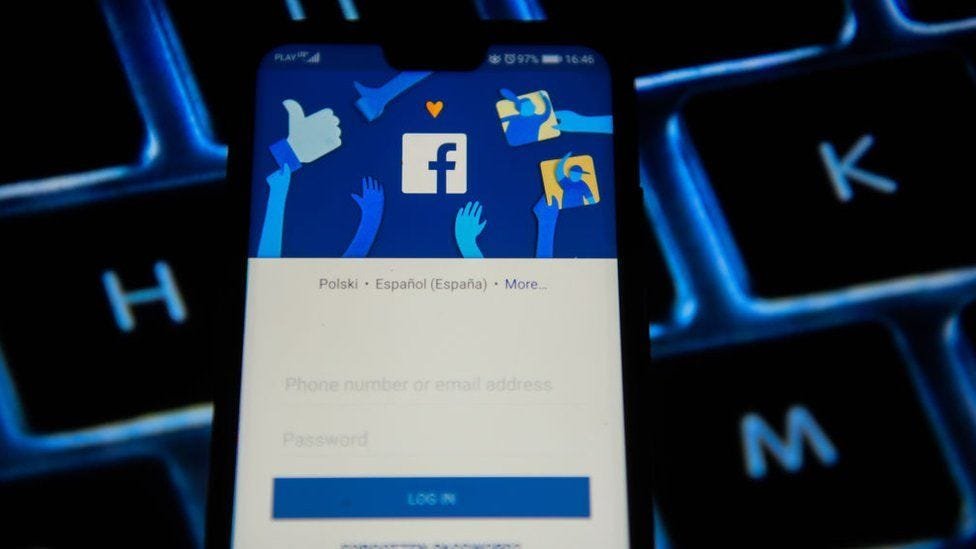In today's digital age, where every click, like, and share leaves a digital footprint, maintaining anonymity on the internet has become more crucial than ever. Whether you're concerned about privacy invasion, data breaches, or cyberstalking, taking steps to stay anonymous online is essential for safeguarding your personal information and protecting your digital identity.
Introduction: Why Anonymity is Important
Anonymity on the internet refers to the ability to browse, communicate, and interact online without revealing your true identity or personal information. It's not about engaging in illegal activities but rather about preserving your privacy and security in an increasingly connected world.
Understanding the Risks
Privacy Invasion
Every time you browse the internet, your online activities are tracked by various websites, advertisers, and even internet service providers. This constant surveillance can lead to the invasion of your privacy, with companies collecting data about your browsing habits, preferences, and personal information without your consent.
Data Breaches
Data breaches have become alarmingly common, with hackers gaining unauthorized access to sensitive information stored by companies and organizations. From credit card details to social security numbers, your personal data is at risk of being exposed in these breaches, leading to identity theft and financial fraud.
Cyberstalking
Cyberstalking, or online harassment, is a serious threat in the digital world. With the ability to trace your online activities and locate your physical whereabouts, cyberstalkers can harass, threaten, and intimidate individuals, causing significant emotional distress and even physical harm.
Methods to Stay Anonymous
Using a VPN
A Virtual Private Network (VPN) is a powerful tool for maintaining anonymity on the internet. By routing your internet connection through encrypted servers located in different countries, a VPN hides your IP address and encrypts your online traffic, making it virtually impossible for third parties to track your activities.
How VPN Works
When you connect to a VPN server, your internet traffic is encrypted and routed through a secure tunnel, preventing ISPs, hackers, and government agencies from monitoring your online activities. Additionally, by masking your IP address with that of the VPN server, you can bypass geo-restrictions and access content from anywhere in the world.
Benefits of Using a VPN
- Enhanced Privacy: With a VPN, your online activities remain private and anonymous, shielded from prying eyes and surveillance.
- Secure Wi-Fi Connections: VPNs encrypt your internet traffic, ensuring that your sensitive information remains protected, especially when using public Wi-Fi networks.
- Bypass Censorship: VPNs enable you to bypass internet censorship and access blocked websites and services, preserving your freedom of expression and access to information.
Tor Browser
The Tor Browser is another effective tool for maintaining anonymity online. It routes your internet traffic through a decentralized network of volunteer-run servers, known as nodes, making it extremely difficult for anyone to track your online activities back to you.
How Tor Works
When you use the Tor Browser, your internet traffic is encrypted and randomly routed through multiple Tor nodes before reaching its destination. This process ensures that your IP address remains hidden and your online activities are anonymous and untraceable.
Advantages of Tor
- Anonymous Browsing: Tor protects your privacy by concealing your IP address and encrypting your internet traffic, preventing anyone from identifying your online activities.
- Resistance to Surveillance: Tor's decentralized architecture makes it highly resistant to surveillance and censorship, ensuring that your online communications remain private and secure.
- Access to the Dark Web: While not inherently illegal, the Tor Browser provides access to the Dark Web, a hidden part of the internet where users can browse anonymously and access content not indexed by traditional search engines.
Encrypted Messaging Apps
In addition to anonymizing your browsing activities, it's essential to secure your communications with encrypted messaging apps that offer end-to-end encryption, ensuring that only you and the intended recipient can read your messages.
Examples of Encrypted Messaging Apps
- Signal: Signal is a popular messaging app known for its robust security features, including end-to-end encryption, self-destructing messages, and privacy-focused policies.
- WhatsApp: Despite some controversies, WhatsApp remains one of the most widely used encrypted messaging apps, offering end-to-end encryption for text messages, voice calls, and video chats.
- Telegram: Telegram offers secure messaging features like Secret Chats, which employ end-to-end encryption and self-destructing messages for added privacy and security.
Importance of End-to-End Encryption
End-to-end encryption ensures that your messages are encrypted on your device and can only be decrypted by the intended recipient's device, preventing anyone, including service providers and hackers, from intercepting and reading your messages.
Secure Browsing Habits
Maintaining anonymity on the internet goes beyond using tools like VPNs and Tor. It also involves adopting secure browsing habits that minimize the risk of privacy breaches and identity theft.
Clearing Cookies and Cache
Cookies are small files stored on your device by websites to track your browsing activities and preferences. Clearing your cookies and cache regularly can help prevent advertisers and websites from monitoring your online behavior and collecting data about you.
Using Private Browsing Mode
Most web browsers offer a private browsing mode that doesn't store your browsing history, cookies, or cache. By using private browsing mode, you can browse the internet anonymously without leaving any traces of your online activities on your device.
Avoiding Suspicious Links and Websites
Be cautious when clicking on links in emails, social media posts, or online ads, especially if they seem suspicious or come from unknown sources. These links may lead to phishing websites designed to steal your personal information or infect your device with malware.
Protecting Personal Information
To maintain anonymity on the internet, it's crucial to limit the amount of personal information you share online and take steps to protect your sensitive data from falling into the wrong hands.
Limiting Social Media Exposure
Review your privacy settings on social media platforms and adjust them to limit the visibility of your profile, posts, and personal information to only trusted friends and connections. Avoid sharing sensitive details like your address, phone number, or financial information on public forums.
Being Cautious with Online Transactions
When making online purchases or conducting financial transactions, only provide your personal and payment information on secure websites with HTTPS encryption. Avoid entering sensitive information on unsecured or unfamiliar websites, as they may be vulnerable to data breaches or fraud.
Conclusion
In an age where online privacy is constantly under threat, staying anonymous on the internet is essential for protecting your personal information, preserving your digital identity, and safeguarding your online security. By using tools like VPNs, Tor, and encrypted messaging apps, adopting secure browsing habits, and protecting your personal information, you can maintain your anonymity online and enjoy a safer and more private internet experience.
FAQs
1. Is using a VPN legal?
- Yes, using a VPN is legal in most countries, although some countries may have restrictions on VPN usage. It's essential to familiarize yourself with the laws and regulations regarding VPNs in your country to avoid any legal issues.
2. Can Tor be hacked?
- While the Tor network itself is highly secure and resistant to hacking, individual users may still be vulnerable to attacks if they engage in risky behavior or fail to properly secure their devices and communications.
3. Are encrypted messaging apps completely secure?
- While encrypted messaging apps offer strong security features like end-to-end encryption, no communication platform is entirely immune to vulnerabilities or breaches. It's crucial to use encrypted messaging apps responsibly and stay informed about any potential security risks.
4. Can I be tracked if I use a VPN or Tor?
- While VPNs and Tor can significantly enhance your online privacy and anonymity, they are not foolproof solutions. Determined adversaries, such as government agencies or sophisticated hackers, may still be able to track or identify you through advanced surveillance techniques.
5. Is it necessary to stay anonymous on the internet if I have nothing to hide?
- Even if you have nothing to hide, maintaining anonymity on the internet is essential for protecting your privacy, security, and personal information from unauthorized access, surveillance, and exploitation. Anonymity is a fundamental right that everyone should uphold to preserve their digital freedoms and autonomy online.

